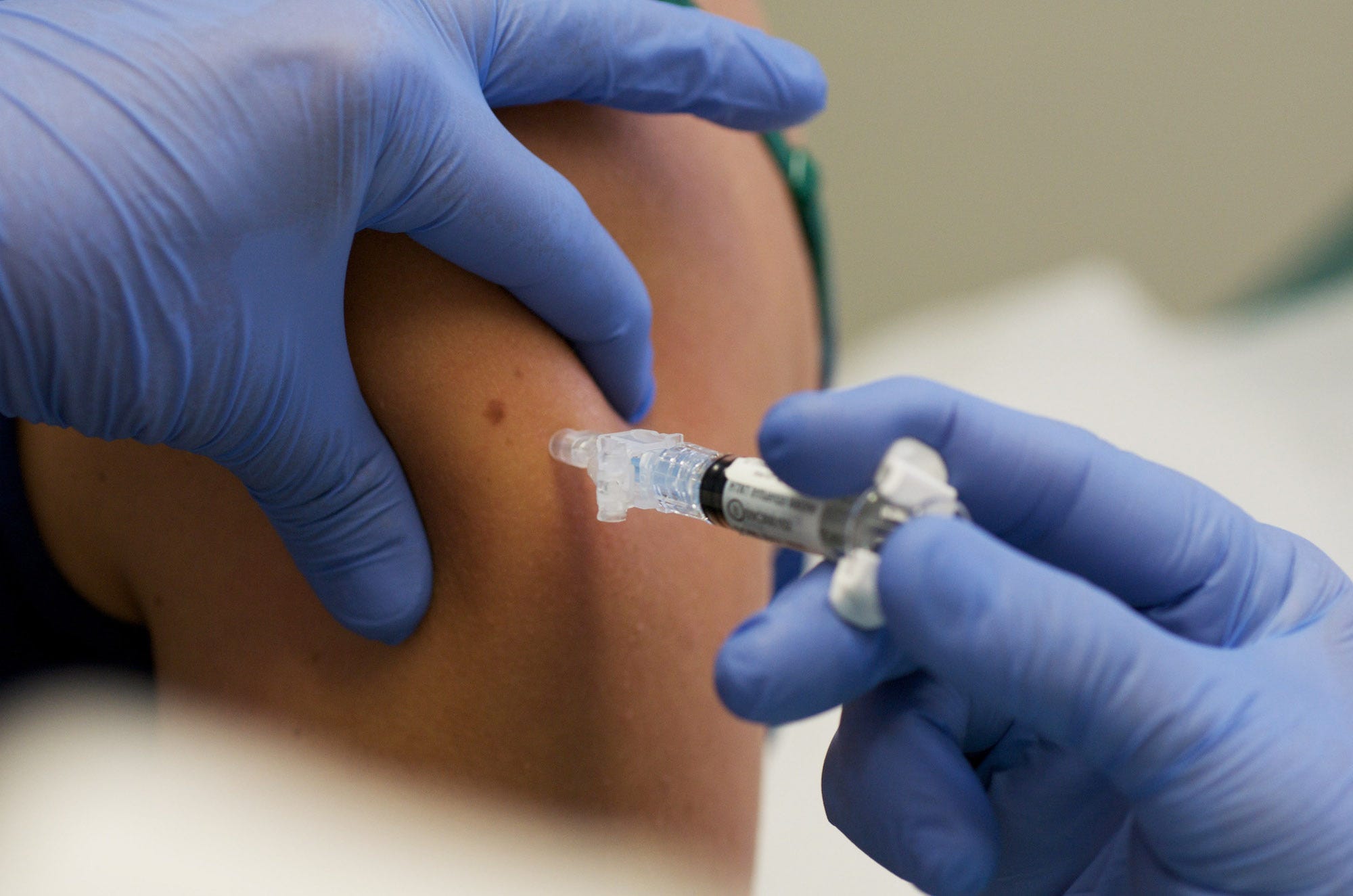
- Some non-clinical Stanford Medicine faculty and researchers mistakenly got the COVID-19 vaccine ahead of schedule this weekend.
- Stanford Hospital offered walk-in vaccine appointments over the weekend and some affiliates thought they may be eligible to receive excess doses.
- There was not actually an excess supply of vaccines, but an unconfirmed number of non-clinical staff got their shots anyway.
- Visit Business Insider’s homepage for more stories.
Some Stanford Medicine affiliates who do not work in patient-facing roles were able to get a first shot of the Pfizer COVID-19 vaccine this weekend due to miscommunication about walk-in appointments, the Stanford Daily reported Tuesday.
The vaccine was supposed to be reserved for frontline healthcare workers through next week, with non-clinical affiliates scheduled to receive the vaccine after January 8.
But when Stanford Hospital offered walk-in vaccinations on Saturday and Sunday – apparently because there weren’t many vaccination appointments scheduled for the weekend – an unconfirmed number of non-clinical staff got the vaccine.
Stanford Health Care did not respond immediately to Insider’s request for comment, but representative Julie Greicius wrote in a statement to the Stanford Daily that Stanford Medicine is administering vaccines to patient-facing health care workers “by invitation only” going forward.
This isn’t the first blunder in Stanford’s vaccine rollout. Stanford Medicine also came under fire a week earlier for prioritizing older, non-frontline workers over residents and fellows in the first round of shots. Leadership apologized for the misstep and said they would shift to prioritize frontline workers, but now the hospital is dealing with another wave of vaccine controversy.
This time, the issue seemed to be a combination of miscommunication about vaccine supply and a lack of eligibility verification at the walk-in appointments, according to four researchers and faculty who told the Daily they either knew someone who got the vaccine early or witnessed the situation firsthand.
Misinformation about an apparent excess of vaccines added to the confusion
False claims that Stanford Medicine had an excess supply of vaccines and non-clinical affiliates were eligible to get the extra doses circulated across email lists and social media over the weekend, which would explain why some affiliates thought they could walk into the hospital and get the shot. In reality, there was no excess supply.
One associate professor, a non-clinical genetics researcher, told the Daily he got the vaccine this weekend after hearing about supposed excess vaccine doses via the developmental biology department faculty mailing list.
"We were just notified through word of mouth that the Pfizer COVID19 vaccine is available for non-clinical staff, apparently they had an excess of it," the developmental biology department email obtained by The Daily read. "You need to enter through the atrium of the New Stanford Hospital. They're open until 11pm tonight and open at 7am tomorrow. No special authorization was needed."
The email was then forwarded to the genetics department and the news quickly circulated on social media, the Daily reported.
While there was not actually an excess vaccine supply at Stanford this weekend, it's true that pharmacists have been able to squeeze an extra dose or two out of both the Pfizer and Moderna vials.
Also this weekend, Redlands Community Hospital in Southern California reconsituted some extra doses for non-frontline healthcare workers - and a woman who works for Disney - after vaccinating the top-priority recipients.
This isn't Stanford's first vaccine misstep
Last week, Stanford Medical faced criticism for passing over frontline residents and fellows in the first round of vaccinations. The hospital used an algorithm that prioritized older employees - including higher-ups and teleworkers - and allowed younger, high-risk workers to slip through the cracks.
Doctors held a demonstration at Stanford Medical Center on December 18 to protest the hospital's misallocation of the vaccine. A letter to top Stanford Medicine officials, as reported by the San Francisco Chronicle, said only seven residents and fellows were vaccinated in the first round while high-ranking officials and remote workers came before them.
Stanford Medical released a statement saying it took "complete responsibility" for issues with the vaccine's rollout.
"Our intent was to develop an ethical and equitable process for distribution of the vaccine," the statement said. "We apologize to our entire community, including our residents, fellows, and other frontline care providers, who have performed heroically during our pandemic response. We are immediately revising our plan to better sequence the distribution of the vaccine."

